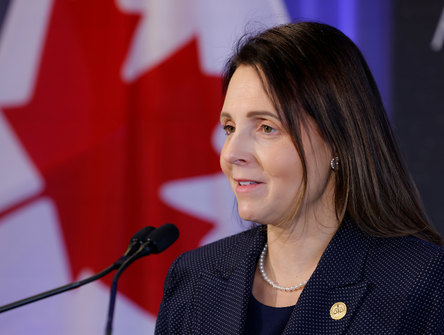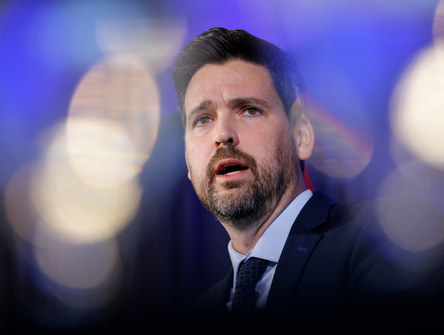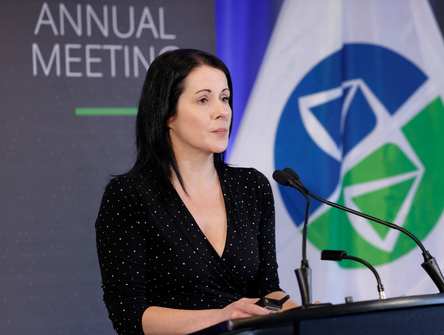A democratic check on Section 33
Some ideas on how to reverse the erosion of the political taboo against the use of the notwithstanding clause.
.jpg?ext=.jpg)
In law, as in life, there's no such thing as a free lunch. Nobody really loves the notwithstanding clause — but its defenders have tended to describe it as a "nuclear option" that entails dire political risks for any government with the nerve to deploy it.
"My guess is that this provision will rarely be used," said Gérard V. La Forest in 1983, two years before his appointment to the Supreme Court of Canada. "The political unpopularity of making declarations contrary to the Charter will militate against this."
More than 30 years later, Justice La Forest's prediction seems wide of the mark. Use of the S. 33 override remains rare, but not as rare as the Charter's most ardent champions had hoped.
After a judge ruled it was unconstitutional for his government to double the restricted pre-election spending period for third-party advertisements to 12 months prior to an election call, Ontario Premier Doug Ford invoked the clause to get the law passed. Saskatchewan invoked it to overturn a 2017 court ruling on the funding of Catholic schools.
Quebec has used S. 33 more than any other province. Back in May, Premier François Legault's government invoked it to defend a new language law from a constitutional challenge. In 2019, his government used the clause to shield Bill 21, a controversial law banning religious symbols from large parts of the civil service.
Critics of the notwithstanding clause say they see the political taboo against its use eroding rapidly. The "nuclear option" is now merely an option — and if the lunch isn't free, it's still cheaper than anyone anticipated back in 1983.
"It seems to be driven by a populist trend in politics, and by the tendency of these governments to feel accountable to their supporters alone, rather than the wider polity," said Robert Leckey, dean of law at McGill University and co-author of a recent paper on S. 33.
Cheryl Milne, executive director of the David Asper Centre for Constitutional Rights at the University of Toronto, said governments have been avoiding political blowback over invoking the notwithstanding clause by carefully choosing their targets.
"(In Ontario), they're invoking it over something most voters probably can't get excited about," said Milne, adding that the legislation that received the S. 33 treatment in Quebec has been broadly popular with voters.
"In Ontario, it's indifference, mostly. In Quebec, you have a large body of voters who don't see it as a problem at all."
If populism is the problem, Leckey sees elections as the solution. In the recent paper he co-wrote with Eric Mendelsohn, he proposes establishing a check on governments' use of the override clause by encouraging courts to state publicly how laws protected by S. 33 abrogate Charter rights. Courts may be powerless to override the override, he said — but they can warn the voting public that their rights are being sidelined, giving them an opportunity to make their views known at the ballot box.
He and Mendelsohn argue that, in fact, this democratic check on the notwithstanding clause is written into the Charter itself — in the five-year sunset clause. "Critically," they write, "five years is the maximum term of legislative bodies. Implicit in S. 33, then, is a link to general elections, one that the nomenclature of 'sunset clause' fails to highlight."
Of course, any superior court offering such proactive advice to voters inevitably would be accused of judicial activism.
"I'd turn that around and ask, 'What's wrong with taking the electorate seriously? Who doesn't want voters to be informed?'" Leckey said.
"Look, Bill 21 denies its nature. It says it respects the rights it violates. In Quebec, people will defend it on the basis of its language and deny that it's doing what it's clearly doing. But it's the courts' job to interpret the law."
Not everyone is convinced. "The courts will very rarely pronounce on a law in that way unless they can offer a remedy," said Milne. "I think the courts would be very reluctant to pursue that 'educational' role. I think they would see it as up to the opposition parties to make that argument."
"It's wrongheaded, I think, to assume that courts can or would make empty declarations to inform the public," said Kerri Froc, a specialist in constitutional law at the University of New Brunswick. She and colleague Jason MacLean have a paper coming out soon that argues that the formal requirements for invoking S. 33 should be expanded to "require meaningful consultation with the public prior to any invocation of section 33 having effect."
"Our argument is that (Leckey and Mendelsohn) overestimate the ability of the courts to engage in the court of public opinion, and underestimate what they can really do," said MacLean. If the voters aren't paying attention to a piece of legislation, he said, a missive from the high court written in dense legal prose isn't going to get their attention.
"The court could add to the formal political requirements involved in invoking S. 33," MacLean said. "A court could look into whether a government engaged in meaningful public notice and consultation before invoking the clause to pass a law that infringes on a charter right.
"The court would be able to say, 'Unless you go through that process, the use of S. 33 here is invalid. If you don't engage in public consultation, it's voided.' We need a new constitutional doctrine on S. 33."
The Canadian Bar Association, which has long supported the repeal of section 33, adopted a resolution in 2020 in favour of imposing guidelines for its use. The resolution suggests requiring that the clause not be used before legislation has been studied by the courts, or without meaningful public consultation, and that it not be used without a two-thirds majority vote in the legislature or Parliament.


